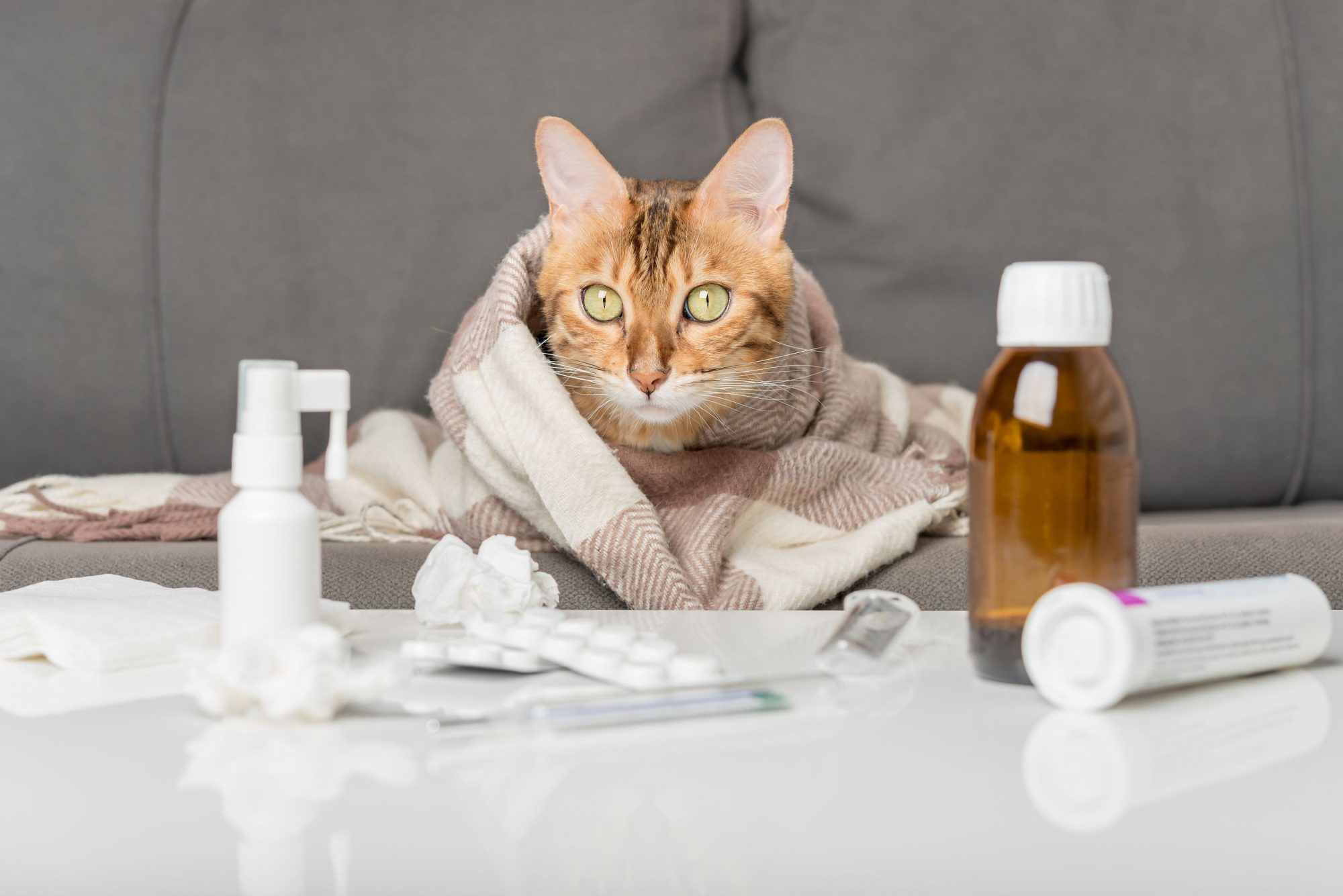How Common Is Sneezing in Cats?

If you’ve started to lovingly refer to your cat as “Sneezy,” it’s a good idea to have them examined. While cat sneezing is not usually a reason to be overly concerned, frequent and unexplained episodes definitely warrant a veterinary visit and examination. This is especially true if they are repeatedly sneezing and also show other uncharacteristic or out of the blue symptoms.
From Minor to Major
Sneezing is the body’s natural response to nasal irritants. Relied on as a way to expel allergens or other irritations, sneezing is highly effective. Until, that is, it’s done repeatedly without relief. Other symptoms to look out for include runny nose, discharge from the eyes, coughing, wheezing, and behavioral changes such as withdrawal or lethargy.
Consistent sneezing in cats can be related to larger health issues. We can help you zero-in on possible problems and get your furry friend on the path to easy breathing.
Getting Close, but Not Too Close
While you want to investigate the cause of ongoing sneezing, be careful of the explosive nature of sneezing. You may get more than you bargained for if your cat sneezes all over your face. Whatever’s affecting your sneezing cat is unlikely to infect you, but it is a good practice to protect yourself from any facial discharge.
If you notice a discoloration to their runny nose or drippy eyes, try to take note if it appears green, bloody, or yellow. We appreciate as much of your observations as possible to achieve a greater understanding of their condition.
Sneezing in Cats
Upper respiratory tract infections are common causes of sneezing in cats. While these are often related to viruses like herpes virus or feline calicivirus, stress and anxiety can exacerbate symptoms and add to increased transmission between felines. Viral infections can trigger bacterial infections, which can be treated effectively with antibiotics.
We can treat and ease the symptoms of respiratory infections. Rest and fluids are part of a multi-pronged treatment plan.
Environmental Allergens
Sneezing in cats may be seen with more frequency during certain parts of the year, or during specific events. For example, seasonal triggers, like grass or mold can be irritating to feline airways. Often, cats that live in environments with heavy smoke, perfume use, or strong cleaners may experience recurrent sneezing episodes. It’s not uncommon for cats to react to dusty cat litter products.
Getting to the bottom of “normal” sneezing in cats can be tricky, especially if sneezing stops and starts without obvious explanation. That said, try to observe what’s happening in and around the home before and during sneezing episodes. It may be worthwhile to substitute their litter, reduce perfumes, and increase ventilation when cleaning.
Further Steps
It is always a good idea to fully vaccinate your cat from contagious diseases, like herpesvirus and calicivirus. Because sneezing can be related to dental problems, nasal tumors, and foreign body inhalation, we urge cat owners to schedule an examination to rule out these serious conditions.
If you have additional questions or concerns about sneezing in cats, please give us a call at (916) 737-5670. Our team at East Sacramento Veterinary Center is always happy to assist you.
